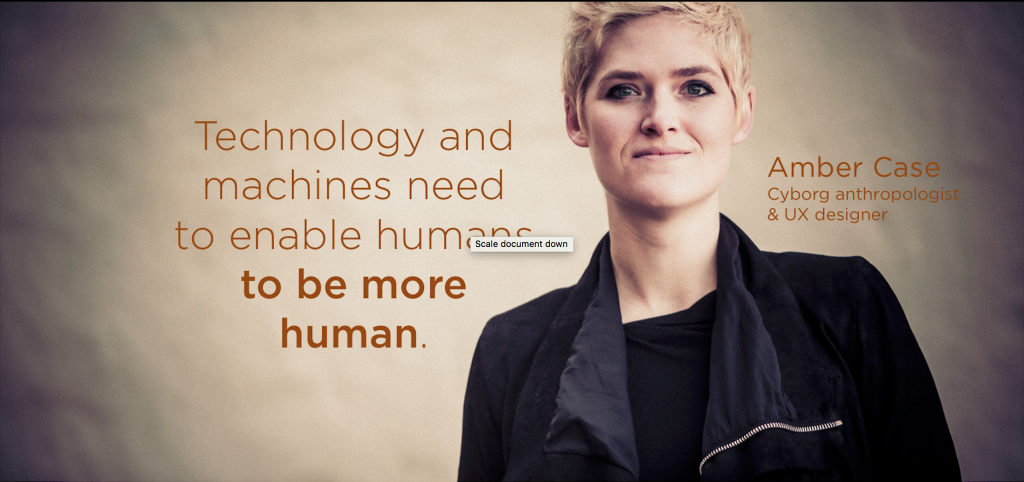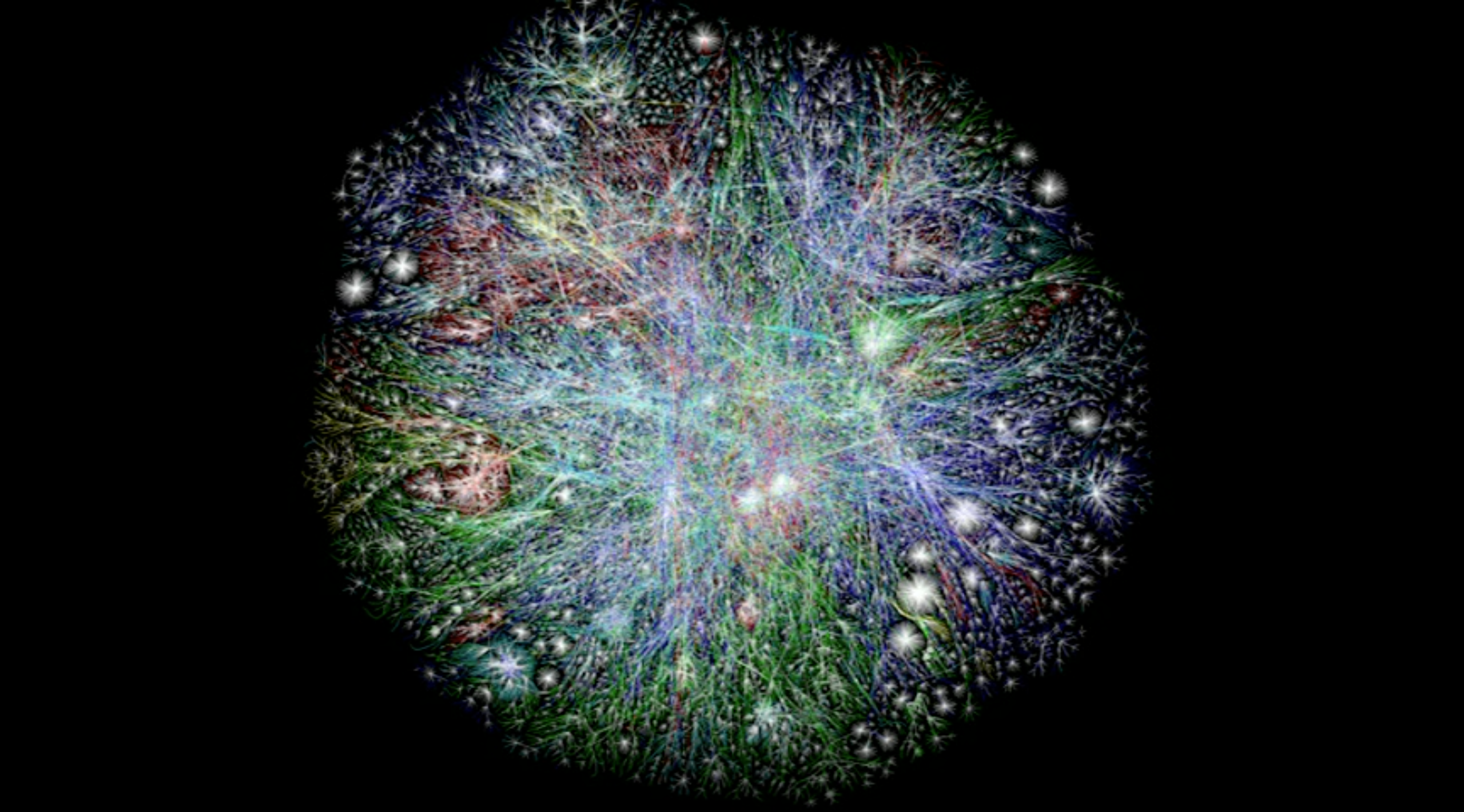My favorite slide from my GlobalLink NEXT presentation:

Technology and machines need to enable humans to be more human
It has also now sparked a serious consideration for a career change. I want to be a cyborg anthropologist!
But really…from Amber Case’s TED talk, which is from 2010, but more prescient today than it seemed then:
[The planet Earth] has its own external prosthetic devices, and these devices are helping us all to communicate and interact with each other. But when you actually visualize it, all the connections that we’re doing right now — [the main image on this post is] the mapping of the Internet — it doesn’t look technological. It actually looks very organic. This is the first time in the entire history of humanity that we’ve connected in this way. And it’s not that machines are taking over.It’s that they’re helping us to be more human, helping us to connect with each other.
The most successful technology gets out of the way and helps us live our lives. And really, it ends up being more human than technology, because we’re co-creating each other all the time. And so this is the important point that I like to study: that things are beautiful, that it’s still a human connection — it’s just done in a different way. We’re just increasing our humanness and our ability to connect with each other, regardless of geography. So that’s why I study cyborg anthropology.
To me, this is exactly what I aspire to – to work with a team of dedicated folks to make something that helps customers accomplish something more easily and efficiently, and that in the end, allows them to be more human. Something that helps them cull the data they have into the data they need. Something that gives them the freedom to exercise their own human judgment.

